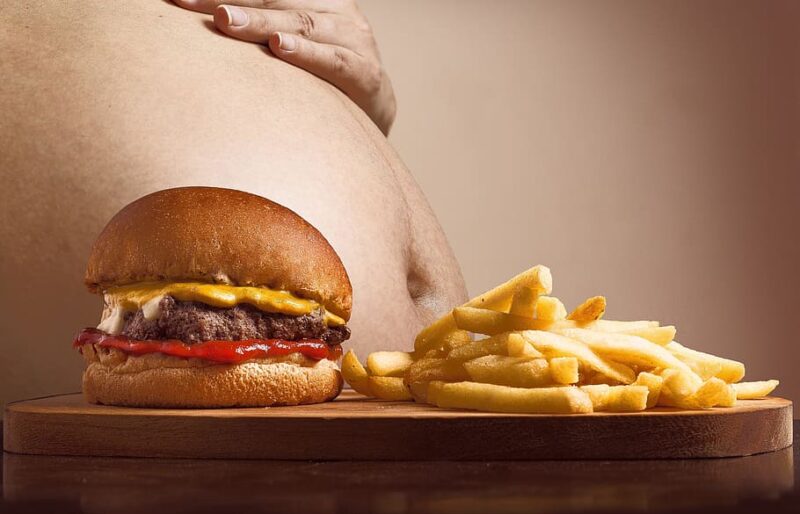One of the most complicated health challenges facing many Americans is obesity.
Being excessively overweight will affect your health if you do not make changes. Obesity is linked to a slew of health complications like heart disease, respiratory problems, diabetes, osteoarthritis, and stroke.
This is something you may know, although understandingly struggle to accommodate. Weight loss requires an enormous commitment and it may seem easier to use a solution like a diet pill.
According to the Gomez Firm, weight loss supplements like Belviq are promoted to “help individuals lose weight, but also prevent them from gaining it back.” Unfortunately, this effect is rarely realized and no change in weight is much more likely.
Tackling the challenges of obesity starts with understanding why it is such a widespread problem. We’ll look at five highly relevant factors for this below.
Easily Accessible Unhealthy Food

To begin with, unhealthy food is easily accessible like never before.
The American diet has drastically changed over time. Many things that are consumed today didn’t exist or were uncommon just a century ago.
An important contribution to this is the rise of processed food. Many foods are perishable, but by processing them, they can last longer. Not only that, but processed foods typically require less effort to prepare.
Another thing to note is that processed food is typically cheaper than fresh food. Processed food often includes unsavory bits of produce and meat that you wouldn’t want fresh. This means cheaper ingredients are used, resulting in a lower quality product.
This lower quality product is often lacking in nutrients and any nutritional value. A great example of this is something like fried chips. While they do have carbohydrates, they’re loaded in unhealthy fat and sodium.
Putting this together, unhealthy food is now cheap, simple to find, easy to eat, and has a longer shelf life. This may make you choose something like fast food over a fresher, healthier alternative like making something from scratch at home.
Oversized Portions

Access to unhealthy food is compounded by the oversized portions that many people are now eating.
Portion sizes are difficult to tackle for many reasons.
First, serving sizes don’t always perfectly translate to a portion. Sometimes a whole serving is far too much of a portion or vice versa. This can make it tricky for you to determine how much you’re eating.
Second, portion sizes have gradually increased over time. At this point, it’s difficult to say what a good portion size of any food is.
Third, portion sizes must be addressed because you’re likely to eat what’s in front of you. Even if you aren’t particularly hungry, you can eat out of boredom and finish something without realizing it.
With this in mind, it’s easy to get confused about what a good portion size is. It’s much easier to just eat as much as you’d like and toss it back when you’re done, as many people do.
Less Physical Activity

Making matters worse, humans are participating in far less physical activity compared to previous generations.
The biggest culprit here is technology. Even a few decades ago, we didn’t have much of the technology we do today. Smartphones and online shopping are two notable examples.
When humans had less technology, they physically did more. Want to buy a new t-shirt? You had to physically visit a clothing or department store.
There also wasn’t much to do at home. Without TV or the internet, many people preferred to go outside or do something away from home.
The other part of this is that technology-driven jobs did not exist. You would’ve never seen someone sitting several hours a day at a computer because they just weren’t around like they are today.
With this in mind, modern people have the convenience of the internet, plenty of digital entertainment at home, and often work desk jobs that require little movement. It is no surprise that people are less active today than previous generations were.
This lack of movement is directly affecting obesity as you expend fewer calories throughout the day as your predecessors likely did. As more people are sedentary, the likelihood of being in a caloric surplus increases and this causes weight gain.
Emotional Eating

Another rising trend is emotional eating to manage stress, anxiety, depression, and other overwhelming emotions.
While food is necessary to survive, some use it as a coping mechanism. Eating food, especially delicious food, produces positive chemicals in your brain.
These chemicals make you feel good and can cause you to forget about other worries. If you’ve ever felt particularly sad and turned to a tub of ice cream, then you know exactly what this looks like.
Unfortunately, some people get addicted to the chemical process triggered by eating. As more tasty foods are now available, emotional eating is becoming more prevalent.
Lastly, what makes this problem particularly rough is that it usually affects children. Childhood obesity is often linked to emotional eating, which continues into adulthood obesity. Misusing food is dangerous and will cause weight gain.
Weight Loss Is Difficult

The final piece of the puzzle here is that weight loss is difficult.
While the formula for weight loss is relatively simple, achieving a caloric deficit every day is anything but.
Do you have a realistic idea of how many calories you consume every day? Chances are, probably not.
Take a day and keep track of everything you eat to see how many calories you consume. Compare this to how many calories you need to survive (usually between 1500-2500 calories depending on activity level and body).
Doing this may show you just how much more you’re eating than you realize. It’s incredibly simple to overeat because many foods are high in calories and you might eat several times a day.
Addressing your weight is hard because you have to force your body to change. Instead of eating as many chips as you’d like, you’ll have just a handful and stop at that. Changes like this seem minor, but they are incredibly hard to make and stick to.
Pair this with the fact that weight loss is extremely slow and it creates a perfect scenario for you to give up. It takes several weeks and months to see results from daily focused effort. Many are unable to do this and obesity is spiking as a result.
Closing Thoughts

Due to changes in technology and processed food, obesity is now a significant concern. Weight loss is unquestionably difficult, but the alternative is damage to your health.
While obesity certainly requires effort on your end, it’s not entirely your fault because the way society approaches food and lives has inherent flaws. This includes easy access to unhealthy food, oversized portions, less physical activity, and increased emotional eating.
Being obese will put you in danger and make your life much more difficult. While it isn’t easy to do, you must commit to weight loss if you want to prolong your life.


